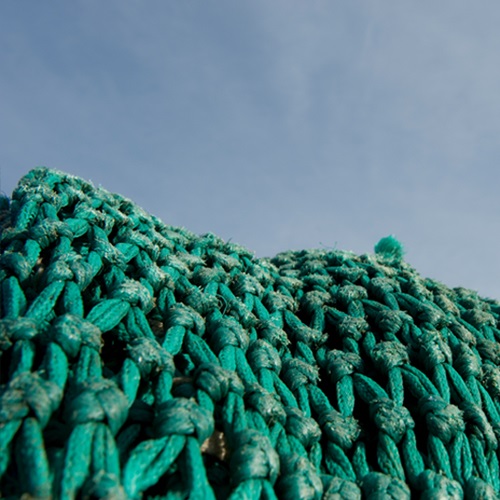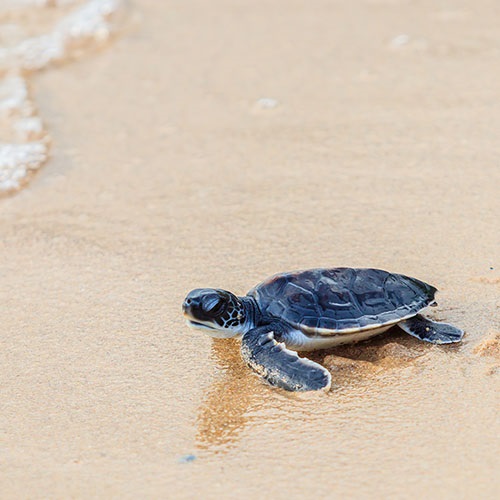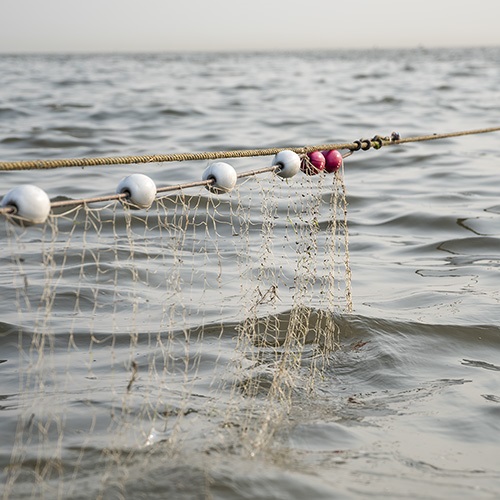The MSC Fisheries Standard recognises fisheries that protect ecosystems and habitats in the places where they fish.
Fishing, like all human activities, has an impact on the environment.
Ecosystems and habitats can be changed or damaged by fishing. For example, bottom trawled fishing gear can have an impact on vulnerable seafloor habitats – places where endangered or slow-growing species such as sea pens and sponges grow.
It’s important that fisheries understand, manage and mitigate their potential impacts. Actions fisheries take may include closing areas off from fishing, using better fishing gear and monitoring ecosystems more closely.
MSC requirements for ecosystems and habitats
The Fisheries Standard’s Principle 2 (minimising environmental impact) covers the effect a fishery has on the environment.
The habitat impacts of a fishery are always considered in an MSC assessment. A fishery cannot be certified if it causes serious damage or irreversible impact on the structure and function of a seafloor habitat. The Standard defines irreversible impact as damage from which a habitat will take 20 years or longer to recover.
Assessors also look at the wider ecosystem impacts of the fishery, including the removal of important species that are food for the ecosystem, such as sardines and krill. They also look at the biodiversity and health of the ecosystem and its resilience to change. Simulations of the ecosystem are sometimes used to estimate its status.
In October 2022, we published a new version of the MSC Fisheries Standard, following the most comprehensive review to date. The new Standard contains clarifications to ensure certified fisheries are not causing serious or irreversible harm to marine habitats and ecosystems. This includes redefining the way habitat status is classified and introducing a new tool to support the assessment of bottom trawling gear on seabed habitats.Our requirements and guidance for the assessment of ecosystems have also been clarified, ensuring that all key elements within an ecosystem, such as key predators, prey, and food web interactions, are identified and assessed. Updated requirements will also ensure a more precautionary approach is taken to assess key low trophic level species, such as sardines, anchovies and krill, to ensure fishing activities are not impacting the wider ecosystem.
Latest global efforts
Fisheries like the MSC certified shrimp fishery in West Greenland are taking action to understand and reduce their impacts. They now use a new net with a lighter trawl door to minimise its impacts on the sea floor.
Norway’s Aker BioMarine fishery, which targets Antarctic krill, was first certified to the MSC Fisheries Standard in 2010 and has been recertified twice since. Aker BioMarine, alongside other krill fisheries in the Antarctic, have formed the Association of Responsible Krill Harvesting Companies (ARK). These fisheries agreed to stop fishing in key areas, such as regions close to penguin breeding colonies, to reduce impacts on marine species that feed on krill.
Research is currently underway to better understand the impacts of the Australian West Coast Crystal Crab fishery on seafloor. The project, which is funded by the MSC’s Ocean Stewardship Fund, is developing a novel underwater monitoring system to capture footage of the deep-sea habitats in which the fishery sets crab pots. The system will be automated and illuminate the seafloor, allowing the research team to identify a fishery’s potential impacts.Find out more

The MSC Fisheries Standard
The Fisheries Standard measures the sustainability of wild-capture fisheries. The Standard is open to all wild-capture fisheries.

Endangered, threatened and protected species
The MSC ensures that certified fisheries allow the recovery of any Endangered, Threatened and Protected species.

Maintaining fish stocks
Sustainable fish stocks are at the heart of the MSC program. Ensuring that the world's fish stocks remain healthy is vital for marine ecosystems and global food security.



